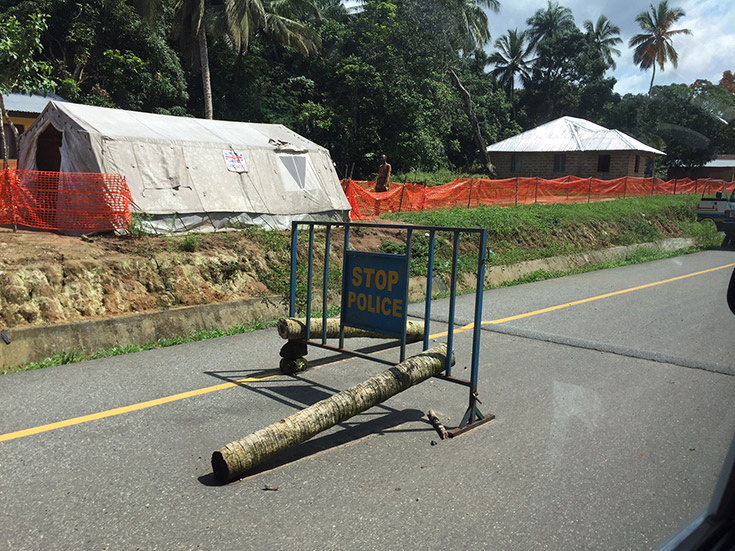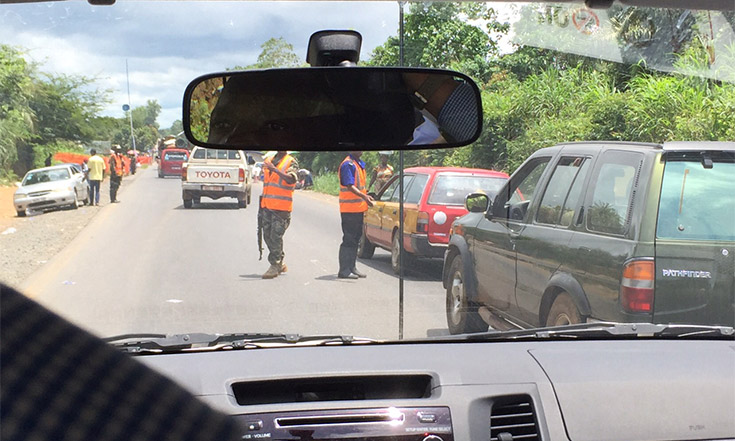On the road in Sierra Leone
In this last blog of this series from Sierra Leone Editorial Advisory Panel Member Robert McAlister and the Director of the BUDMC are out of the Freetown area and heading north through Wellington towards Port Loko.

Police and military checkpoints take travellers' temperatures in the fight against Ebola

You do not have to travel far out of Freetown for it to become rural quite quickly. Surprisingly the roads are well developed – long straight tarmac highways with heavy goods vehicles bringing in produce and supplies from the airport. The occasional village and market break up the boredom of the road. These villages comprise of shops, sometimes a petrol station and the obligatory stray dogs, with people laying washing out on the hot metallic road to dry in the heat.
Driving here is interesting and you need your wits about you as drivers weave in and out to overtake, even on blinds bends. It feels like a deadly game of chicken as vehicles hurtle towards you at speed.
It all appears quite normal to other road users and drivers are given a few horn blasts to let them know to move out of the way; this also applies to motorbikes and pedestrians.
Every ten to 20 kilometres you find yourself at a vehicle checkpoint, manned by the Military or Police. Queues of cars line up as the passengers are asked to leave the vehicle to have their temperature taken and comply with compulsory hand washing. This is something you get used to everywhere in Sierra Leone, and most people do not appear disgruntled. After a year of Ebola, most see this as an absolute necessity and welcome this network of protection.
These checkpoints and wash facilities have proved vital in the fight to reduce Ebola spreading, monitoring movement and tracking back if a case does occur.
On the drive we see the NGO Forward Supply Bases storing food and other supplies ready to be deployed where needed, and our driver points out historic Ebola hotspots and burial areas.
Running alongside the main highway is a railroad track, complete with rusting empty containers that probably once carried industrial materials. It seems a world away from the heavily populated Freetown and its volume of people and noise.
Over the next few weeks I will update on the recovery efforts relating to the recent serious floods but, most importantly, Sierra Leone’s progress towards ‘Zero Ebola’
Robert McAlister, 03/10/2015